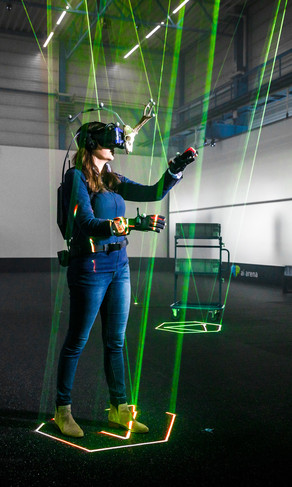Management of electrical systems
A variety of specializations are provided in the Management of Electrical Systems profile. For example, students can opt for an energy technology or communications technology focus, gaining in-depth insights into control engineering, electrical machines, power electronics and on-board systems.
The electric power system is changing and facing many new challenges. The increase in renewable energy plants (RES) not only changes the direction of power flow, but also influences the stability of the electrical grid. In addition to the various possibilities of generating electrical energy in a decentralized manner, students learn in depth about power electronic technologies, which are increasingly being used. Furthermore, the effects on the grid and the challenges of the power systems are described.

A newly built HVDC hall, a smart grid lab and insights into current research underpin the knowledge gained and provide a good insight into future job opportunities. An insight into competitive systems and market modeling of the energy industry rounds out the profile. Similarly, mobile networks are facing a transformation. Smartphones and social networks are constant companions these days. The demand for WLAN in public places and also the need for faster and better Internet is increasing so that the expansion of broadband networks is indispensable. Students learn in-depth about the development of mobile networks and their structure, distinguishing between local radio networks, satellite radio networks and cellular radio networks. While the knowledge from the field of communication networks and communications engineering is deepened, image communication, communication via satellites and digital transmission systems are described in an extended way.
In addition, students learn in-depth control engineering skills in the area of automation. Skills include modeling and application of controls and systems and robotics. Furthermore, students learn about the functioning of on-board networks in automotive applications as well as electromagnetic compatibility.
The compulsory and elective areas can be found in the Module Handbook Master Industrial Engineering of the Department of Mechanical Engineering.
The modules from the field of economics can be found in the module handbook of the Department of Economics.
The compulsory and elective modules can be found in the Module Handbook Bachelor in Industrial Engineering of the Department of Mechanical Engineering.
The modules from the field of economics can be found in the module handbook of the Department of Economics.
Competences and job profiles
In this profile, students acquire in-depth knowledge of the electrical power system and communication network. Building on the knowledge from the bachelor's degree, new technologies and challenges in particular are taught here. A deepened understanding of different operating equipment and functionality of the respective networks provide a more comprehensive knowledge. Due to the detailed knowledge acquired, graduates of this specialization are readily employed as experts in selected fields. Basically, industrial engineers can be employed as project managers, product managers, in planning, research or development. Depending on the modules chosen, students are experts in energy technology, communication technology or control engineering systems. Due to their interdisciplinary nature, industrial engineers are also employed in the field of consulting.







![[Translate to English:] [Translate to English:]](/storages/zentraler_bilderpool/_processed_/c/6/csm_Internationale_Studierende_aus_Ecuador_aae423f6a4.jpg)
![[Translate to English:] [Translate to English:]](/storages/zentraler_bilderpool/_processed_/f/5/csm_Audimax_Vorlesung-2_d01b012610.jpg)